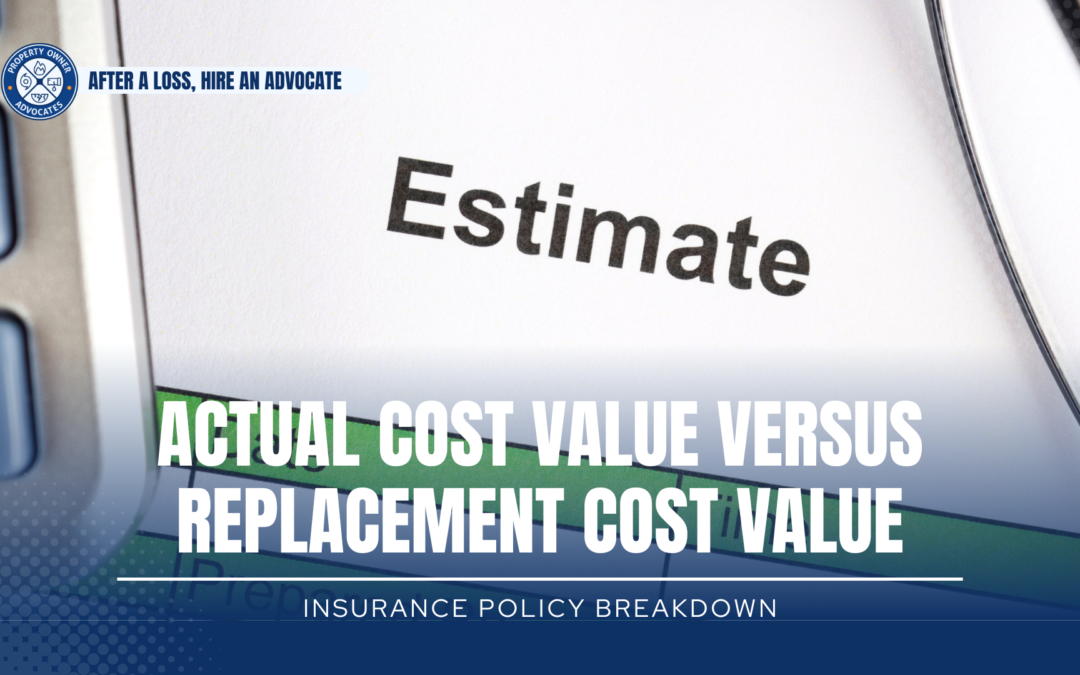When it comes to property insurance claims, there are two ways that the value of the property can be determined: Actual Cash Value (ACV) and Replacement Cost (RC). Understanding the difference between these two methods of valuation is important because it can have a significant impact on the amount of compensation you receive from your insurance provider. In this blog, we’ll explore the difference between ACV and RC in property insurance claims.
What Is Actual Cash Value (ACV)?
Actual Cash Value is the value of the property at the time of loss, taking into account depreciation. Depreciation is a reduction in value over time due to wear and tear, obsolescence, or other factors. When determining the ACV of a property, the insurance company will consider the age, condition, and market value of the property. The ACV of a property is typically lower than the Replacement Cost.
For example, if a ten-year-old roof is damaged in a storm, the ACV of the roof will be based on its current value, taking into account its age and condition. The insurance company will subtract the depreciation from the original cost of the roof to determine its ACV.
What Is Replacement Cost (RCV)
Replacement Cost is the cost to replace or repair the damaged property with materials of similar kind and quality, without deduction for depreciation. When determining the RC of a property, the insurance company will consider the cost of labor, materials, and other expenses associated with replacing or repairing the property.
For example, if a ten-year-old roof is damaged in a storm, the RC of the roof will be based on the cost of replacing the roof with a new one of similar kind and quality, without taking into account the age or condition of the original roof.
The Difference Between ACV and RVC Explained
The main difference between ACV and RC is that ACV takes into account depreciation, while RC does not. ACV provides compensation for the value of the property at the time of the loss, while RC provides compensation for the cost of replacing or repairing the property.
In property insurance claims, the policy may provide coverage for either ACV or RC. It is important to understand what type of coverage you have and what the policy limits are. If you have RC coverage, you may be able to receive a higher amount of compensation for the damage to your property. However, RC coverage may have higher premiums than ACV coverage.
In conclusion, understanding the difference between ACV and RC in property insurance claims is important. ACV takes into account depreciation and provides compensation for the value of the property at the time of loss, while RC provides compensation for the cost of replacing or repairing the property. Make sure to review your policy and discuss your options with your insurance provider to ensure that you have the coverage that best meets your needs.

